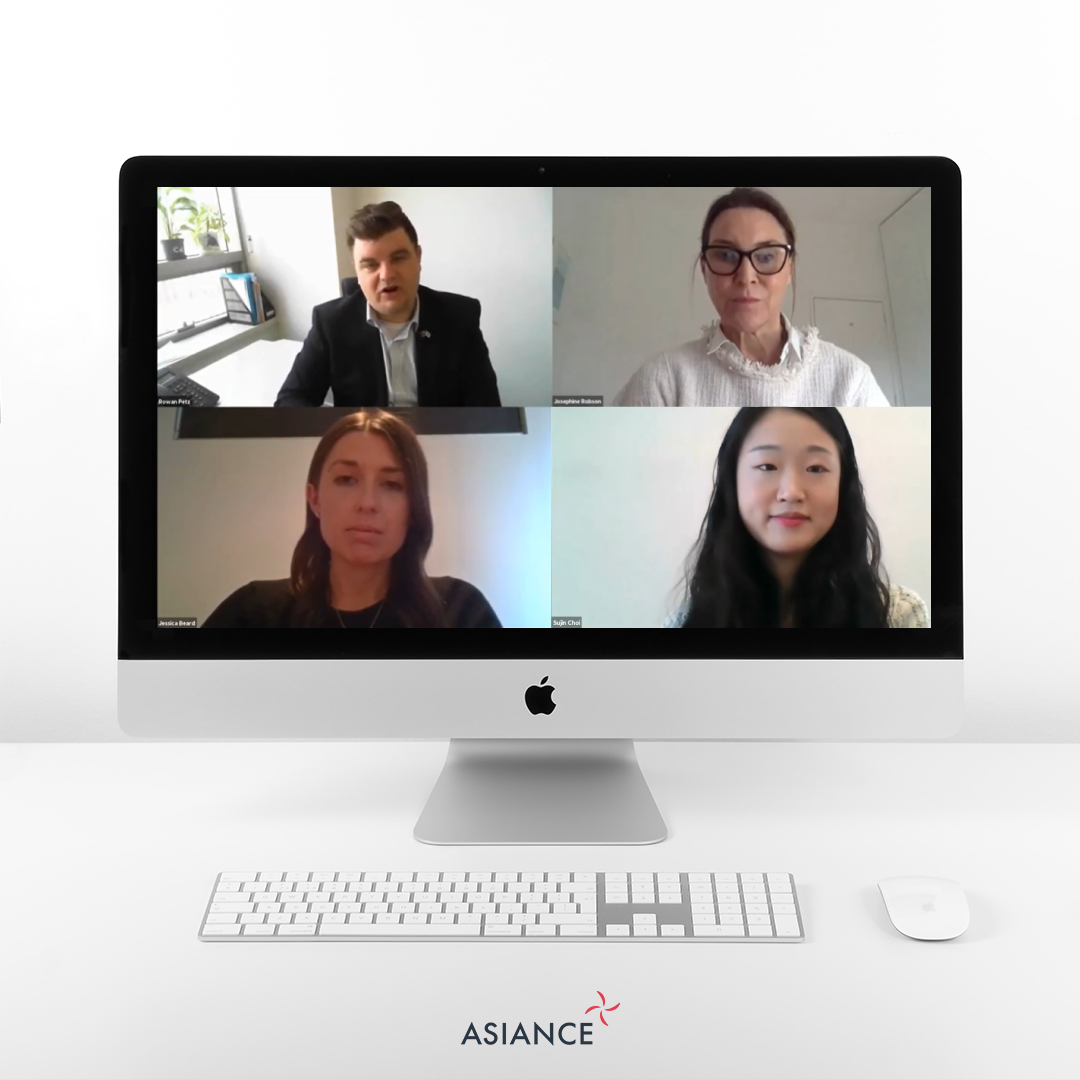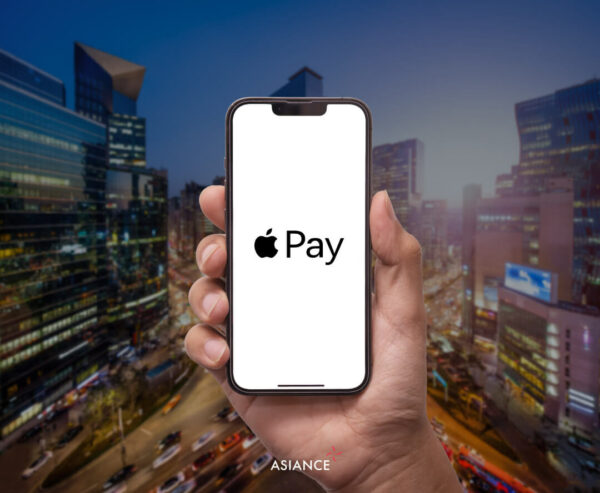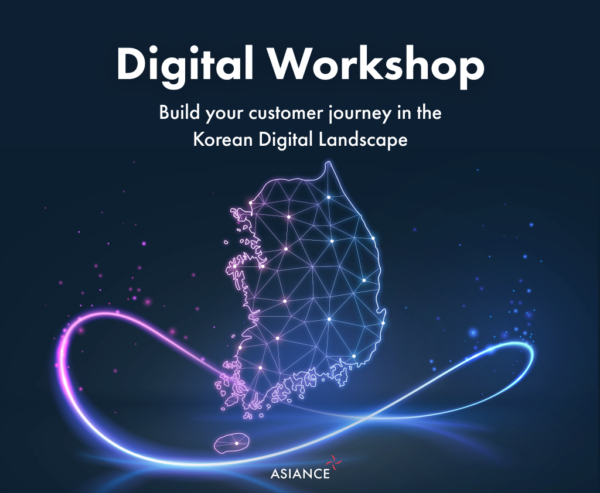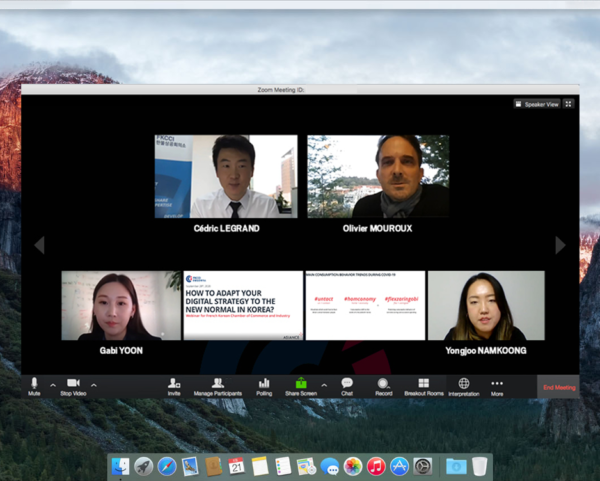On June 2nd, we had the honor to present an exceptional webinar organized by the Australian Chamber of Commerce in Korea about the impact of COVID-19 on Korea’s digital ecosystem and how to adapt digital strategies to the New Normal in Korea.
We were grateful to have over 100 registrations for the event and considerable interest from Australian businesses keen to export to South Korea. The webinar included two parts, with the first session delving into the meaning and marketing strategies embodied in the ‘Brand Australia’ label, featuring a presentation by Jessica Beard, Export Manager at AMCL and a case study by Josephine Robson, Founder/CEO at Golden 8 Skincare. The second part of the webinar focused on Korean branding insights by Sujin Choi, Digital Strategy Consultant at Asiance.
In this article, we would like to share some of the insights shared during the second part of the webinar as well as answer some of the questions that arose.
The Corona outbreak has already changed our lives in many ways, and we have been living in this new normal for more than a year. Then why is digital marketing in Korea a major opportunity now more than ever? Not only have Korean consumers already adapted to social media and online shopping across all ages, but they are also showing evolving digital strategies across industries such as fashion, beauty, sports, travel, hobbies, gaming, and so on. In addition, the customer journey is transforming more in a digitalized way for every brand in Korea.
Therefore, there is no doubt that now is the most appropriate time for global brands to enter the Korean market. It is essential to understand the Korean digital market regarding local platforms, customer behavior, trends and changes in specific industries in Korea, and references from global brands that have succeeded in localization.
We identified that both local and global brands running their digital businesses in Korea have gone through a process of adaptation as their long term strategy. It is necessary to seize the opportunity to overcome hurdles that were brought from COVID-19 and accelerate the shift to online. In short, brands must understand the changes and shifts not only on a macro-level (market, consumer, etc.), but also the impact on their micro-level. And as there are dynamics in digital media and channels, brands must quickly understand the strengths and weaknesses of each platform and how it can be adequately utilized. Also, brands should understand the high demand and expectations of Korean customers especially regarding digital services as the untact services have been accelerated in Korea since the pandemic.
We hope that this webinar will give you an overview of how to prepare for the next half of 2021 and 2022.
We selected a few questions that arose among the audience and have shared our responses below.
Do propolis skincare products have any potential in the Korean market?
Yes, Korean consumers are very interested in products that help improve skin health regarding propolis skincare products. In Korea, there are various cosmetics brands that are well known for propolis products such as CNP, Skin Food, etc. In particular, sales of skincare products surged overall after Corona. There is even an app called ‘Hwahae’ which lists the ingredients together with their EWG (Environmental Working Group) ratings, equipping customers with the knowledge of what they are actually putting on their face. Hwahae lets customers purchase rationally by using customer reviews to rank skincare by category, skin type, skin concern, and brand. Hwahae has ranked 1st among the cosmetics apps for 8 consecutive years.
How much potential does the pet market, especially natural supplements for dogs and cats have in Korea, and what platform would it be beneficial to enter?
The pet market in Korea is definitely potential as the number of households raising pets increases. Most Koreans use online channels when they purchase pet goods since the pandemic as stay-at-home hours have been extended. Also, 66% of dog/cat breeders purchase healthy food/nutrients, (in the order of joint/bone nutritional supplements > comprehensive nutritional supplements > intestinal supplements, oral supplements, etc.) and the ratio is increased from 2019 according to Open Survey. And people usually use certain online channels such as open market platforms, fresh food platforms, and online malls for pet products.
If you have any interest in digesting more practical and specific information about the Korean digital ecosystem, Asiance digital workshop is held monthly.
Please contact us here: https://blog.asiance.com/2021/04/08/digital-workshop-korean-digital-landscape/
Watch the replay of the webinar:
https://www.youtube.com/watch?v=bV7oV6R4owE
More information:
Contact us:
https://blog.asiance.com/2021/04/08/digital-workshop-korean-digital-landscape/












